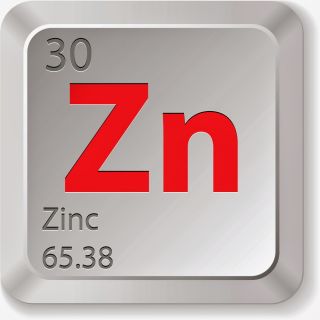Are you taking zinc supplements? #ClinicSpeak #MSResearch #MSBlog
"The following is a small study suggesting that zinc supplements improve depression in MSers. The study is far too small to be confident with the outcome; the result could be a false positive. There is, however, a large body of evidence associating low zinc levels with low mood. Is this cause or effect? Based on this I think the research community should take these observations forward and do properly powered clinical trial to see if zinc supplements reduce depression in MSers."
"Interestingly, I have seen one case of zinc deficiency in my career as a neurologist; a woman with an eating disorder who presented with pins and needles around her mouth and in her fingers and toes. Once she started zinc supplementation and improved her diet her symptoms resolved. I have also seen several cases of zinc toxicity as well; all the cases I have seen presented with copper deficiency. Zinc and copper compete for the same receptor for absorption; if you take in too much zinc you can't absorb copper. Copper deficiency causes a well defined clinical syndrome with involvement of the spinal cord and abnormal blood counts and iron metabolism. Both zinc deficiency and zinc toxicity can present with symptoms suggestive of MS. This is why you should not go out and buy yourself zinc supplements and self-medicate yourself without checking with your neurologist or MS nurse specialist first. Too little, and too much, of most supplements are associated with problems. Therefore please stick to the RDA (recommended daily allowance) of zinc if you prefer to self-medicate."
Salari et al. Zinc sulphate: A reasonable choice for depression management in patients with multiple sclerosis: A randomized, double-blind, placebo-controlled clinical trial. Pharmacol Rep. 2015 Jun;67(3):606-9. doi: 10.1016/j.pharep.2015.01.002
INTRODUCTION: Major Depressive Disorder (MDD) is known as one of the most common psychiatric disorders in MSers. In recent years, zinc has been found to have beneficial effects on psychopathology and the therapy of depression.
AIMS: The aim of the present study was to examine the effect of zinc supplement on depression and neurological signs in MSers.
METHODS: The present randomized, double-blind, placebo-controlled clinical trial was performed on 43 MSers and who also demonstrated MDD based on the Beck questionnaire. These MSers were randomly selected and were divided into two groups: the placebo group (n=22) and the intervention group (n=21). The patients received either zinc sulphate (220mg containing 50mg zinc element) or a placebo for 12 weeks. Clinical examinations were obtained in terms of abnormal ocular movement, muscle power, and gait disorder.
RESULTS: The results indicated that in the MSers who received the zinc supplement, the mean score of depression was reduced compared to those in the placebo group, whereas the neurological examinations revealed that there were no differences between the treatment and control groups.
CONCLUSION: Therefore, the zinc supplementation is an appropriate choice for the depression management in patients with MS.

